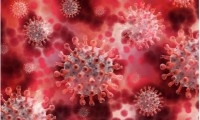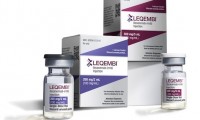-
Novartis to acquire Chinook Therapeutics for approximately $3.5bn
- Source: drugdu
- 262
- June 14, 2023
-
Updated Covid vaccines need to target XBB omicron variants this fall, FDA staff says
- Source: drugdu
- 464
- June 14, 2023
-
Researchers identify microRNAs associated with a weakened immune response to COVID-19
- Source: drugdu
- 251
- June 13, 2023
-
Turmeric supplement accelerates post-match recovery in elite footballers
- Source: drugdu
- 524
- June 13, 2023
-
Similar symptoms, biological abnormalities underlie long COVID and chronic fatigue syndrome
- Source: drugdu
- 376
- June 13, 2023
-
Researchers uncover new insights into why individuals are affected differently by COVID-19 infection
- Source: drugdu
- 274
- June 13, 2023
-
Bristol Myers’ cell therapy manufacturing site in Massachusetts is good to go, FDA says
- Source: drugdu
- 330
- June 13, 2023
-
Eisai, Biogen’s Alzheimer’s disease drug Leqembi passes muster at FDA adcomm
- Source: drugdu
- 355
- June 13, 2023
-
Cosette acquires worldwide rights to Endoceutics’ Intraros prescription drug
- Source: drugdu
- 237
- June 13, 2023
-
Novartis reveals results from pivotal CML survey
- Source: drugdu
- 264
- June 13, 2023
your submission has already been received.
OK
Subscribe
Please enter a valid Email address!
Submit
The most relevant industry news & insight will be sent to you every two weeks.

















